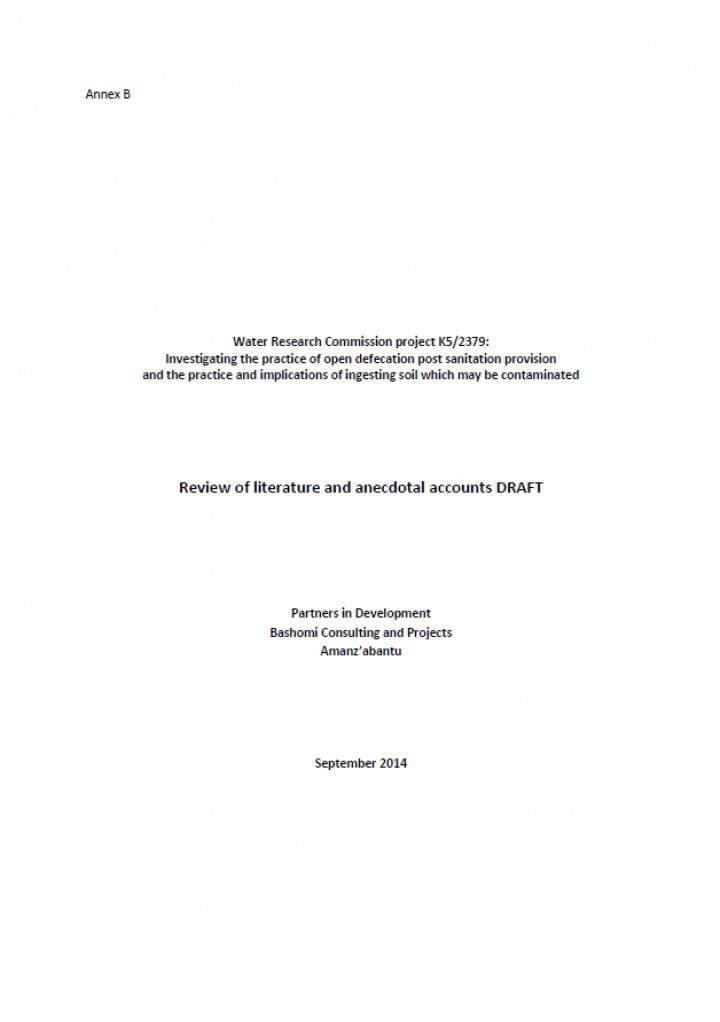Investigating the practice of open defecation post sanitation provision and the practice and implications of ingesting soil which may be contaminated - Review of literature and anecdotal accounts (draft)
WRC (2014)

Published in: 2014
Pages: 52
Publisher:
Partners in Development, Bashomi Consulting and Projects, Amanz’abantu for Water Research Commission project K5/2379, Pretoria, South Africa
Author:
WRC
Uploaded by:
SuSanA Admin
Partner profile:
common upload
5545 Views
130 Downloads
Content - Summary
This review explores the literature relevant to the topics of open defecation, geophagia and soil - or faecally - transmitted diseases and interventions to address these, as well as anecdotal accounts of these topics from the areas targeted for this study (KwaZulu-Natal, Limpopo/Gauteng and Eastern Cape).
A review of guidance on research methodology and health and hygiene materials will be added to this document at a later date.
As a result of open defecation, not only harmful microbes but a vast number of helminth eggs are
passed from infected individuals into the soil. Depending on the environmental conditions, these
eggs may remain infective for a very long time. Consequently, where open defecation occurs or
occurred in the past, the environment may remain contaminated for years after any visible evidence
of a faecal deposit has vanished.
While helminthic infections often occur through accidental consumption of eggs from soil on dirty
hands, a factor which makes the presence of this "egg bank" in the soil even more hazardous is the
practice of intentionally eating soil -- called geophagia. Where the practices of open defecation and
geophagia occur at the same household the risks of these combined behaviours as a route of
transmission for helminthic and other infections may be particularly high. While the literature on the
practice of geophagia is slim, what literature exists demonstrates that globally the practice is
widespread; anecdotal accounts suggest that it is a very common practice in South Africa.
Because of the health implications of geophagia and open defecation in terms of helminthic
infections and diarrhoeal diseases in particular, it is vital that health and hygiene interventions
address these practices and provide clear information about disease transmission and the hygiene
practices which can prevent it.
Bibliographic information
WRC (2014). Investigating the practice of open defecation post sanitation provision and the practice and implications of ingesting soil which may be contaminated - Review of literature and anecdotal accounts (draft). Partners in Development, Bashomi Consulting and Projects, Amanz’abantu for Water Research Commission project K5/2379, Pretoria, South Africa
Filter tags
English Rural Sub-Saharan Africa















